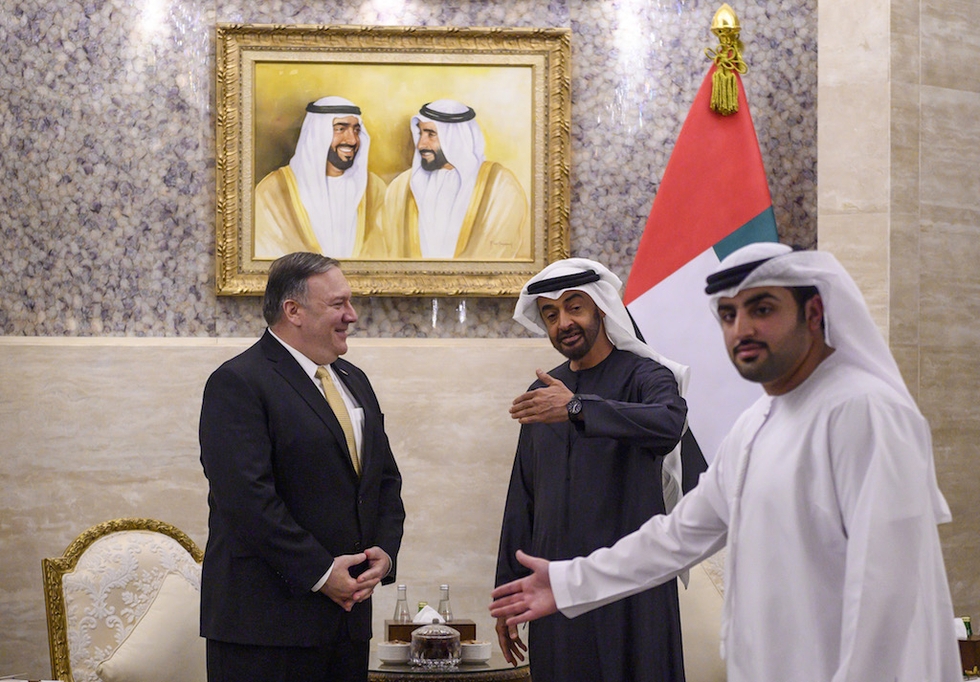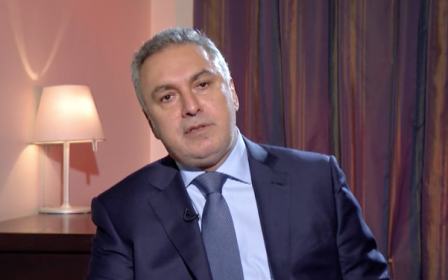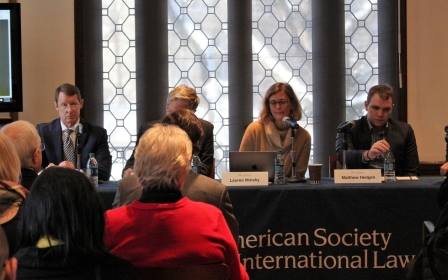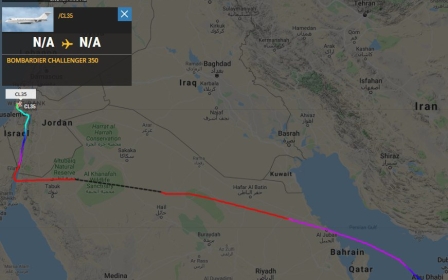'Just the right thing to do': Liberal US think-tank severs financial ties with UAE

A leading liberal US think-tank is set to sever financial ties with the United Arab Emirates (UAE), citing a need to push back against an "anti-democratic" global trend.
The Washington-based Center for American Progress (CAP) had previously listed funding from the UAE embassy ranging between $500,000 and $1m.
The organisation announced on Friday that it would be no longer accepting money from authoritarian governments, citing US President Donald Trump's growing ties with such states around the world.
"With a rising undemocratic tide around the world, and serious questions about which side of that struggle our own president stands on, it seemed clear that all Americans should take extra steps and leave no doubt where they stand," a CAP spokesperson told the UK's Guardian newspaper.
"This funding never impacted any CAP position or policy, but everybody here agrees it's just the right thing to do."
According to documents seen by the Guardian, the UAE started phasing out Emirati money in June of 2018, a move finalised in December.
Internal emails leaked
The centre, which was founded in 2003 by John Podesta - President Bill Clinton's former chief of staff - fired two employees earlier in January for leaking internal company emails which supposedly showed the UAE had an influence on the centre.
The row involved a statement to be released on the murder of Saudi journalist Jamal Khashoggi in the kingdom's consulate in Istanbul in October.
Various reports, including an assessment by the CIA, have pinned the murder on Saudi Crown Prince Mohammed bin Salman, a close ally of the UAE.
According to a report by the Intercept, an email exchange had seen a discussion over what consequences should be recommended by the think-tank for the US in the wake of the killing.
An intitial suggestion of specific consequences was eventually watered down, with the final 12 October statement suggesting Washington "take additional steps to reassess" the US-Saudi relationship.
UAE's reputation damaged
The UAE's international reputation has been damaged recently following the seven-month long detention of UK student Matthew Hedges.
Hedges was imprisoned by the UAE on spying charges last year and was subsequently pardoned after pressure from the British government.
Speaking at an event hosted by the American Society of International Law (ASIL) in Washington on Tuesday, Hegdes called on countries to re-examine their ties to authoritarian governments, including the UAE.
It was illegal and it was unjustified
- Detained UK student Matthew Hedges
"I'm not going to let my experience and my prosecution stand," Hedges said.
"I've instructed a lawyer to clear my name and hold the UAE accountable for the actions they took in my detention and sentencing."
Both Hedges and the UK government have strongly denied the UAE's allegations that the academic was involved in spying or has any ties to British intelligence agency MI6.
Asked about the form of accountability he is seeking, Hedges told Middle East Eye: an "acknowledgement".
Hedges said getting the Emirati government to admit to wrongdoing in his case would be the first step.
"It's obviously something that is going to be very difficult to achieve, but that's very important to make them realise and understand that the reactions and decisions and behaviours they undertook - it was illegal and it was unjustified," he told MEE.
New MEE newsletter: Jerusalem Dispatch
Sign up to get the latest insights and analysis on Israel-Palestine, alongside Turkey Unpacked and other MEE newsletters
Middle East Eye delivers independent and unrivalled coverage and analysis of the Middle East, North Africa and beyond. To learn more about republishing this content and the associated fees, please fill out this form. More about MEE can be found here.




